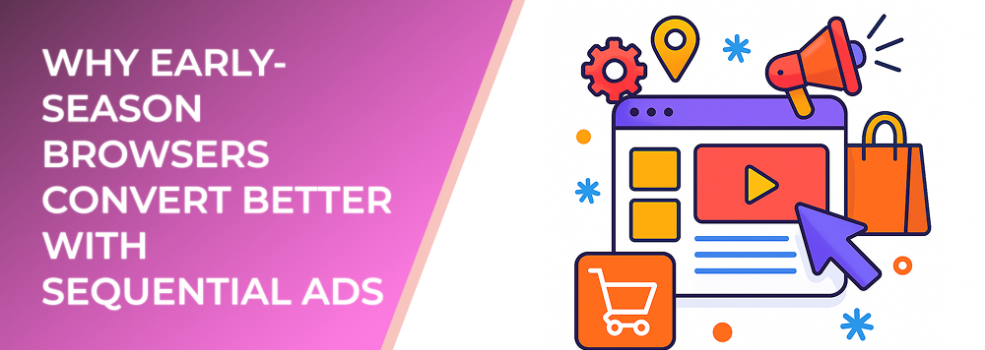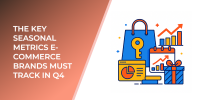Every year, a predictable yet often overlooked pattern emerges in consumer behavior: early-season browsers tend to convert at higher rates than mid- or late-season shoppers. These early explorers are already engaged, motivated, and searching for solutions long before peak buying moments. When paired with sequential ads that guide them through a structured journey, their conversion probability increases dramatically.
Why Early-Season Browsers Matter
Research on ecommerce behavior shows that more than 60% of holiday shoppers start browsing weeks before purchasing. This early window gives advertisers a unique opportunity to influence decisions while buyers are still forming preferences.
Additional consumer studies reveal that early-season shoppers are 35% more likely to compare multiple brands and 42% more likely to revisit websites as they evaluate options. This group is engaged but undecided — the ideal audience for strategic sequential messaging.
The Power of Sequential Ads

Average online conversion rate across all industries in mid-2024 (~1.65%) vs performers and laggards
Sequential ads deliver messages in a specific order, building narrative and trust over time. Instead of serving the same generic ad repeatedly, sequential campaigns move users from awareness to consideration to conversion.
Why Sequential Ads Work Especially Well for Early Browsers
1. They Match the Research-Oriented Mindset
Early shoppers spend more time evaluating brands. Sequential ads meet them where they are by offering progressively detailed information. Studies show that structured ad storytelling can increase purchase intent by up to 70%.
2. They Prevent Message Fatigue
Showing the same ad to a user for weeks leads to ad fatigue and lower engagement. Sequential ads rotate creative and message angles, maintaining user interest over a longer browsing cycle.
3. They Strengthen Retargeting Performance
Early-season audiences generate more touchpoints — product views, add‑to‑cart events, category exploration. When retargeted in sequence, these behaviors produce superior results. Data indicates retargeted users convert 5–7 times more than cold audiences.
4. They Drive Higher Average Order Value (AOV)
Because early browsers have time to compare and plan, they are more receptive to value‑focused messaging. Brands report AOV lifts of 10–15% when sequential ads highlight bundles, upgrades, or complementary products.
How to Build an Effective Sequential Funnel
Phase 1: Awareness
-
Highlight problem‑solution fit
-
Use educational or value‑driven messages
-
Focus on broad engagement
Phase 2: Consideration
-
Introduce product advantages
-
Use social proof, credibility, and comparisons
-
Retarget based on browsing behavior
Phase 3: Conversion
-
Serve urgency, discounts, or limited‑time offers
-
Focus on cart abandoners and high‑intent product viewers
Best Practices for Early-Season Sequential Campaigns

Desktop conversions (~3.2%) remain higher than mobile (~2.8%) — showing device-based conversion gap
-
Start your campaigns earlier than your competitors
-
Build at least 3–4 creative variations per phase
-
Use warm audiences from past seasons for early‑phase targeting
-
Monitor frequency and avoid overexposure
-
Use behavior‑based triggers to advance users through the sequence
Conclusion
Early-season browsers represent one of the most valuable segments in the marketing calendar. Their intent, research-driven behavior, and longer decision cycles make them ideal candidates for sequential advertising. By structuring your messaging, nurturing engagement, and activating retargeting at the right moment, you can significantly boost both conversion rates and overall return on ad spend.

